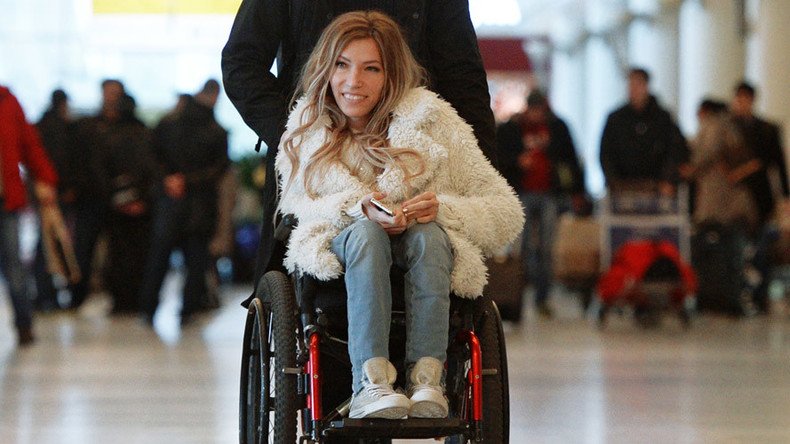Ukraine bans Russian wheelchair-using Eurovision singer from finals

The Ukrainian Security Council has banned Russian singer Yulia Samoylova, set to represent Russia at the 2017 Eurovision song contest, from entering the country for three years.
The decision to bar the Russian singer, who has used a wheelchair since her childhood, from entering the Eurovision host country was announced on Wednesday by a Security Council spokeswoman.
The decision was based on the Russian citizen allegedly having previously "broken Ukrainian law," Elena Gitlyanskaya wrote on Facebook.
The Russian Foreign Ministry is "outraged" by Kiev's decision, ministry official Grigory Karasin told Interfax, calling it "a cynical and inhuman act by Kiev authorities."
The European Broadcasting Union (EBU), which produces the popular song competition, has confirmed that Kiev issued a travel ban on the Russian artist.
"We are deeply disappointed in this decision as we feel it goes against both the spirit of the Contest, and the notion of inclusivity that lies at the heart of its values," the organization's statement read.
The body will "continue a dialogue with the Ukrainian authorities with the aim of ensuring that all artists can perform" at the song contest in Kiev, it added.
The Ukrainian security authorities had earlier announced they were investigating the Russian singer's profile, suspecting her of violating Ukrainian law by performing in Crimea without special permission.
The Kremlin subsequently voiced concern over Kiev's statements, with press secretary Dmitry Peskov expressing hope the singer would be able to participate in the song contest in Kiev in May.
Televoting vs. Jury: Results of Eurovision song contest spark political controversy https://t.co/66pwwCW9qOpic.twitter.com/NDyJAYdDuK
— RT (@RT_com) May 15, 2016
Ukraine won the right to host the 62nd Eurovision competition when its singer, Jamala, won the international song contest in Stockholm, Sweden last year. Russian pop singer Sergey Lazarev finished third with a visually charged performance, despite receiving the top score in televote, marking him as the winner in the viewers’ eyes.












